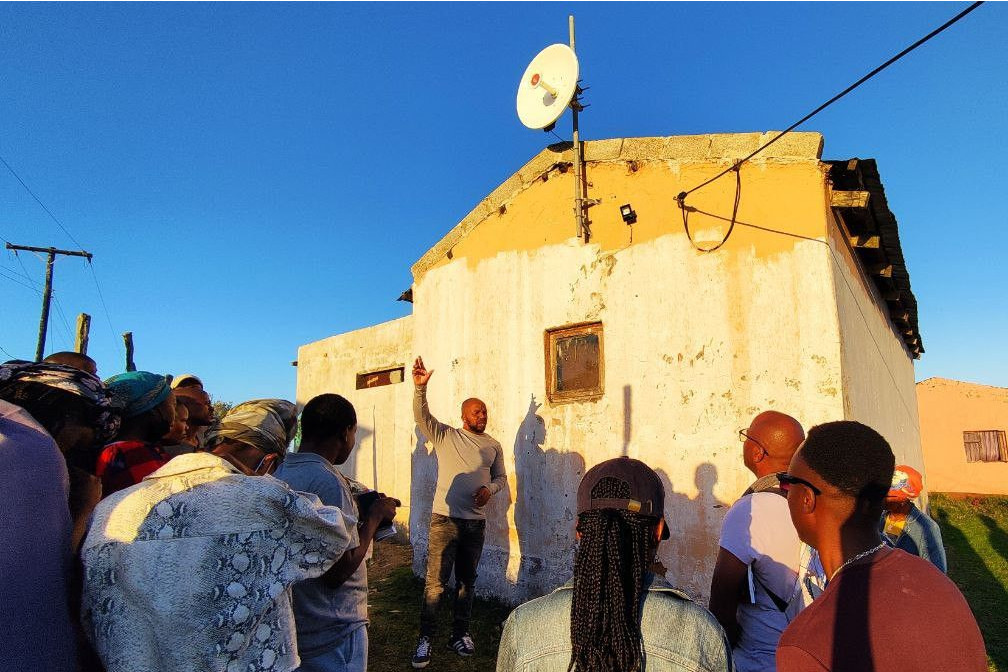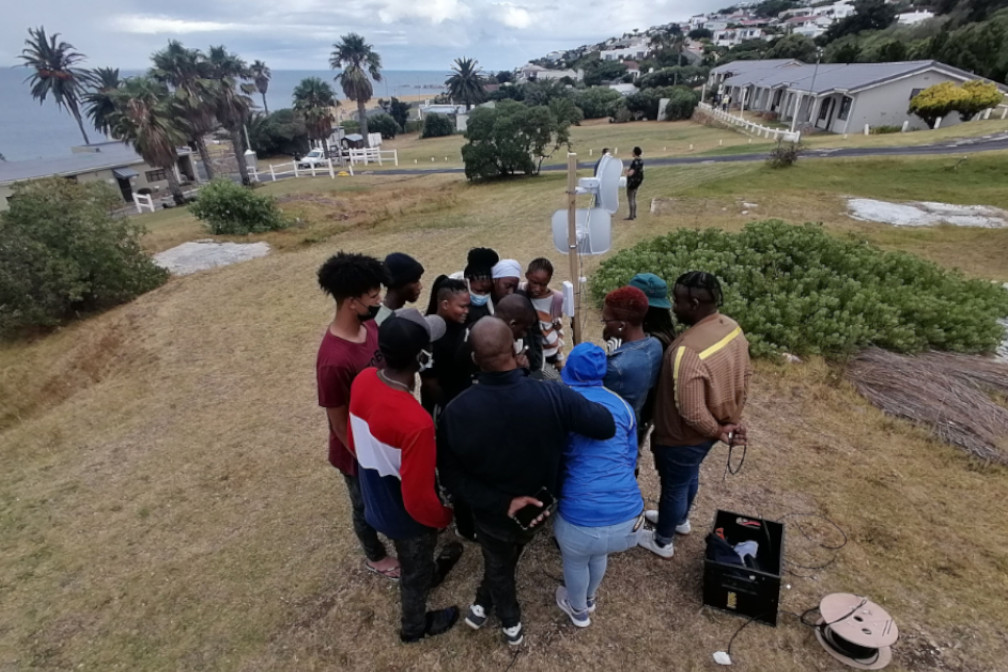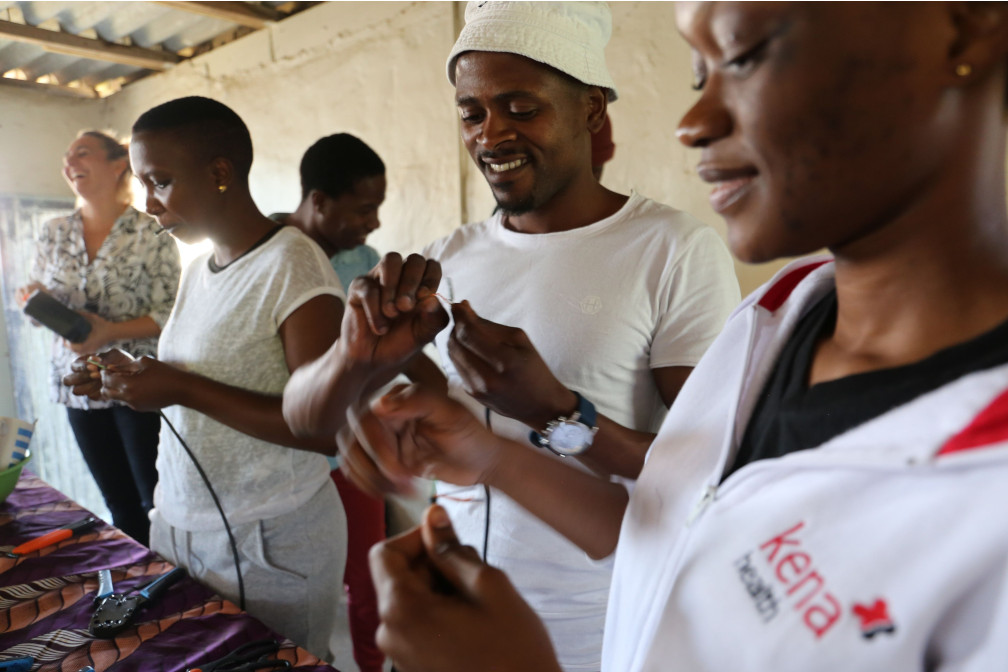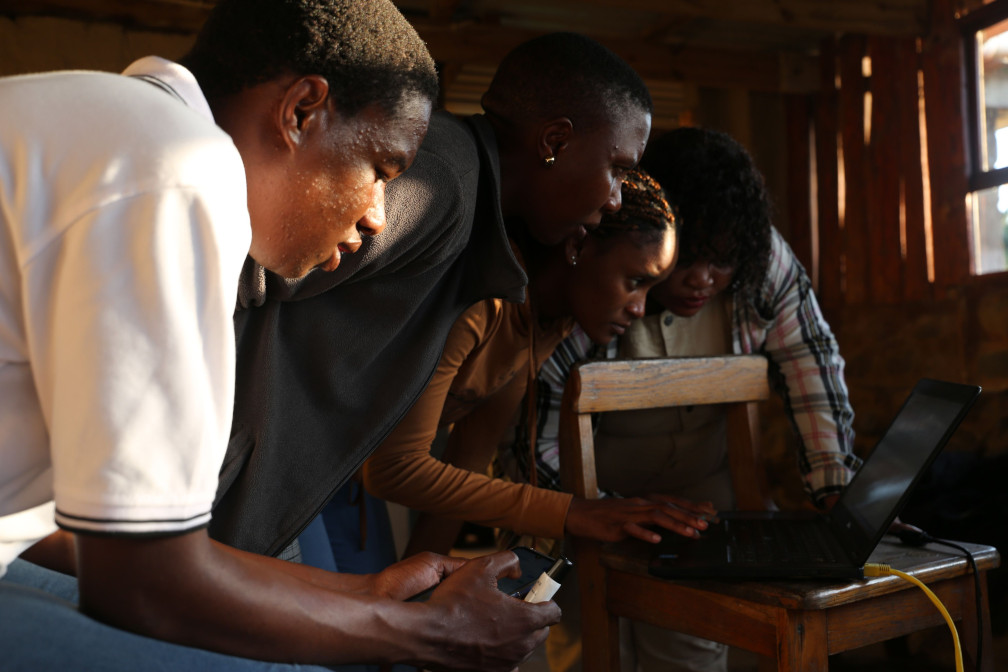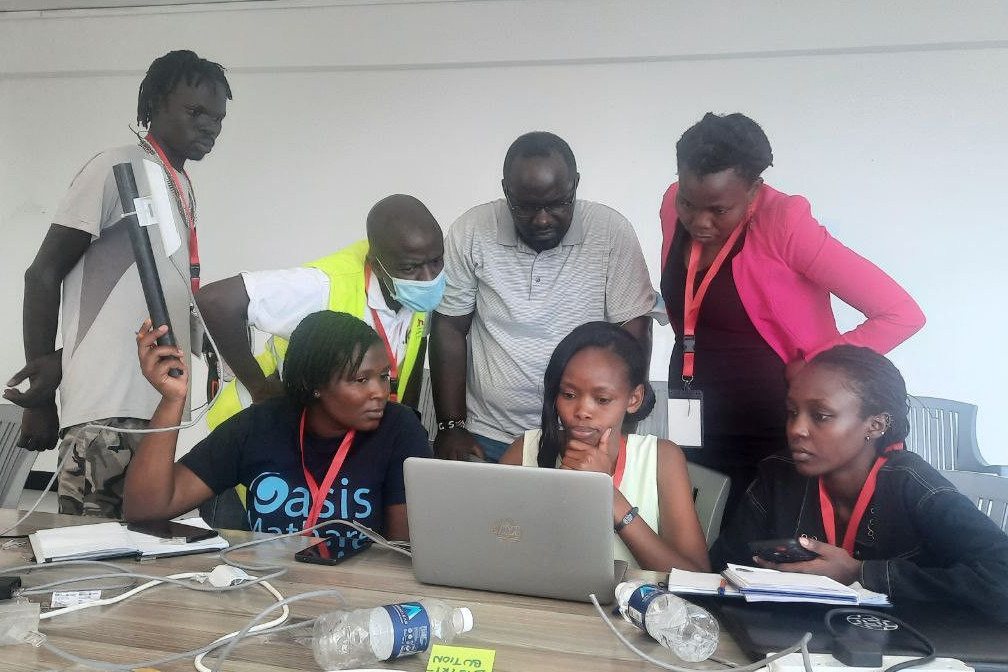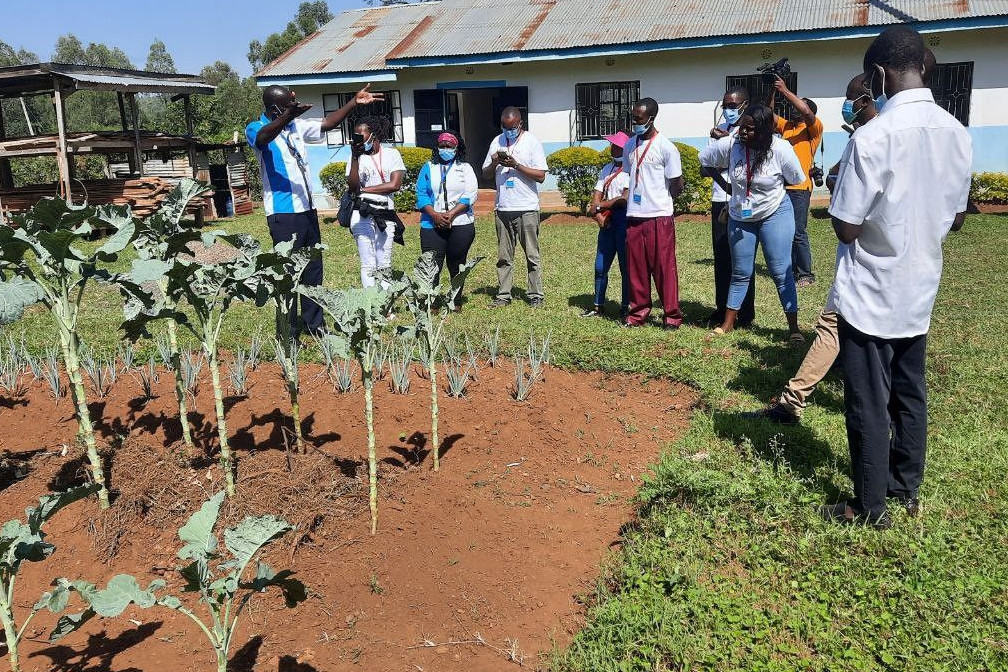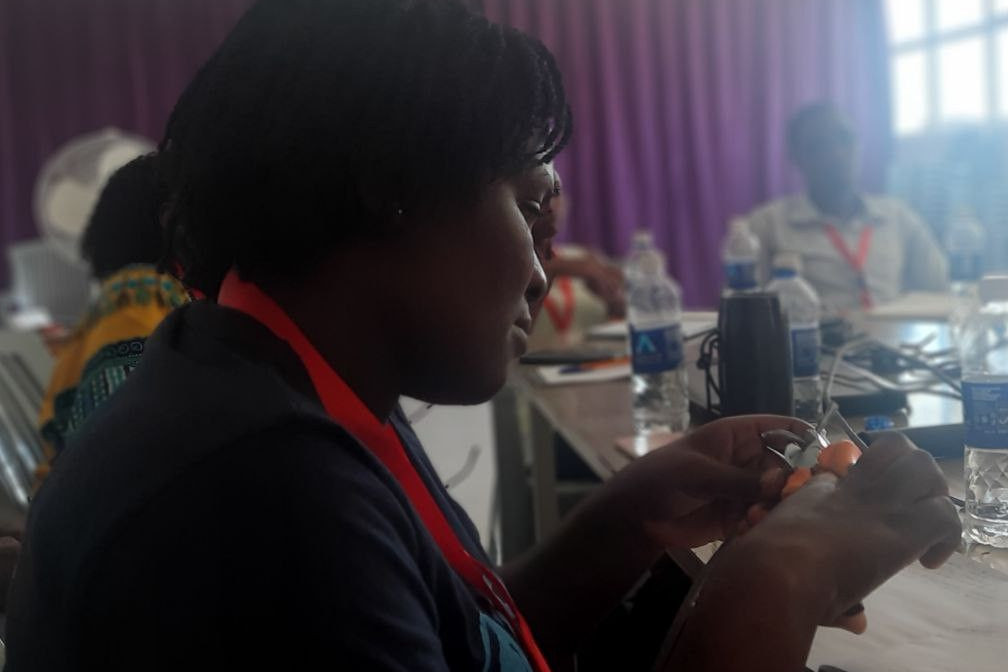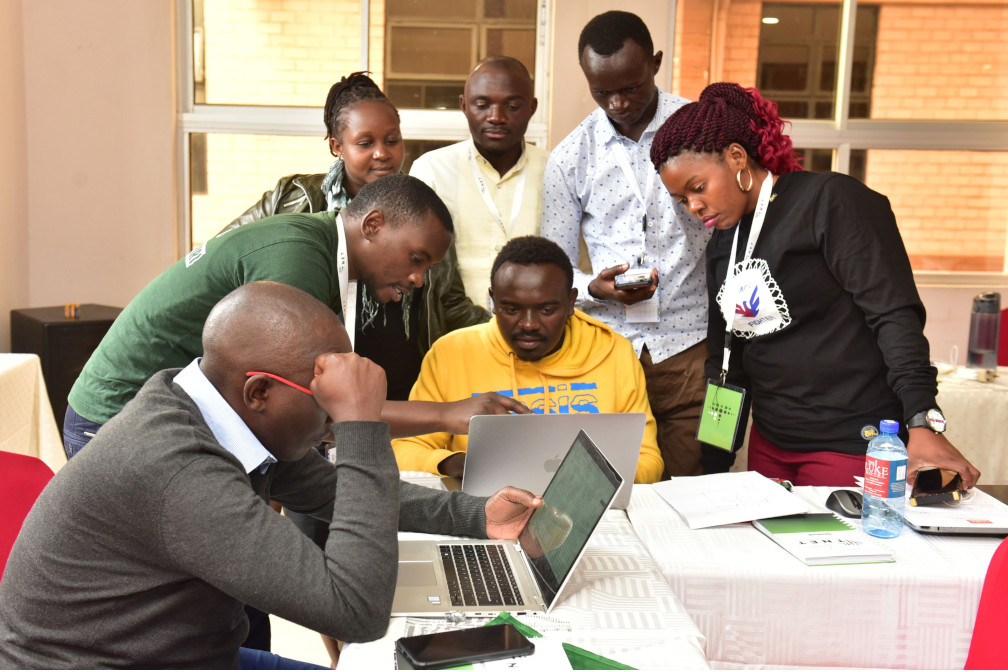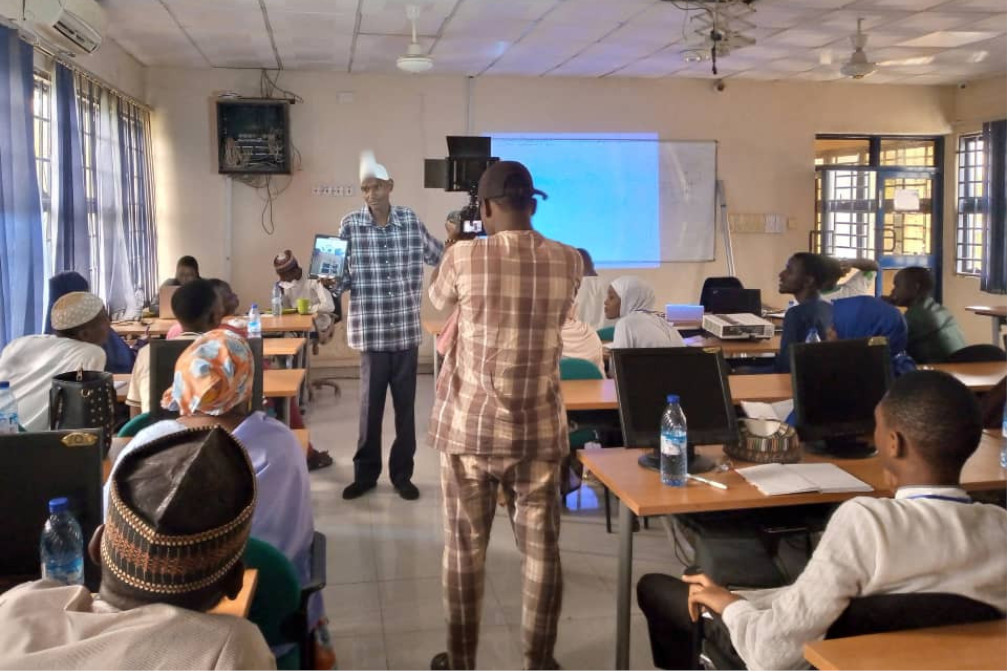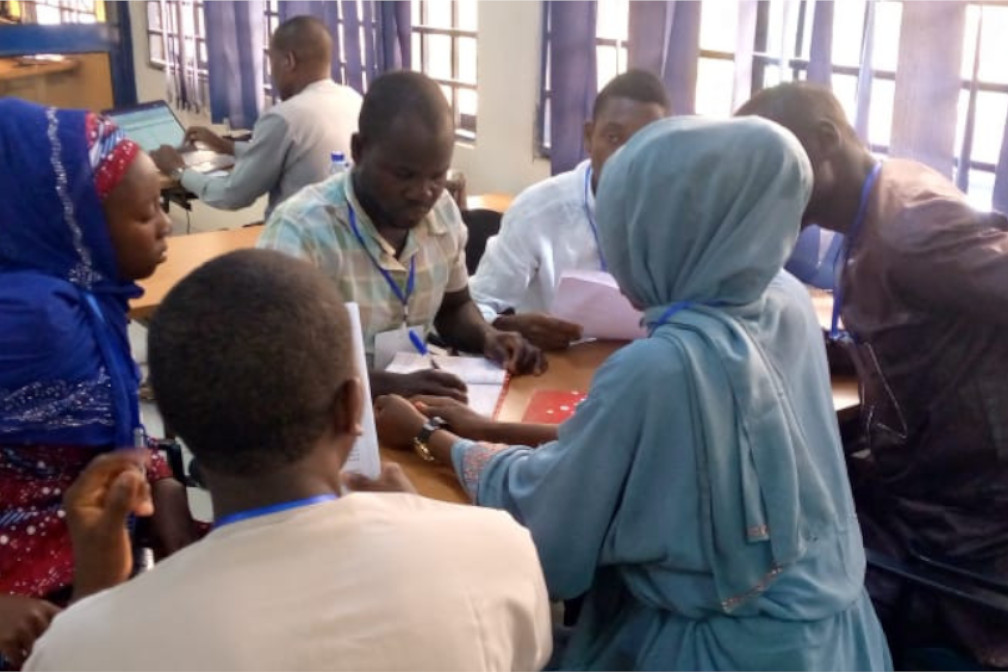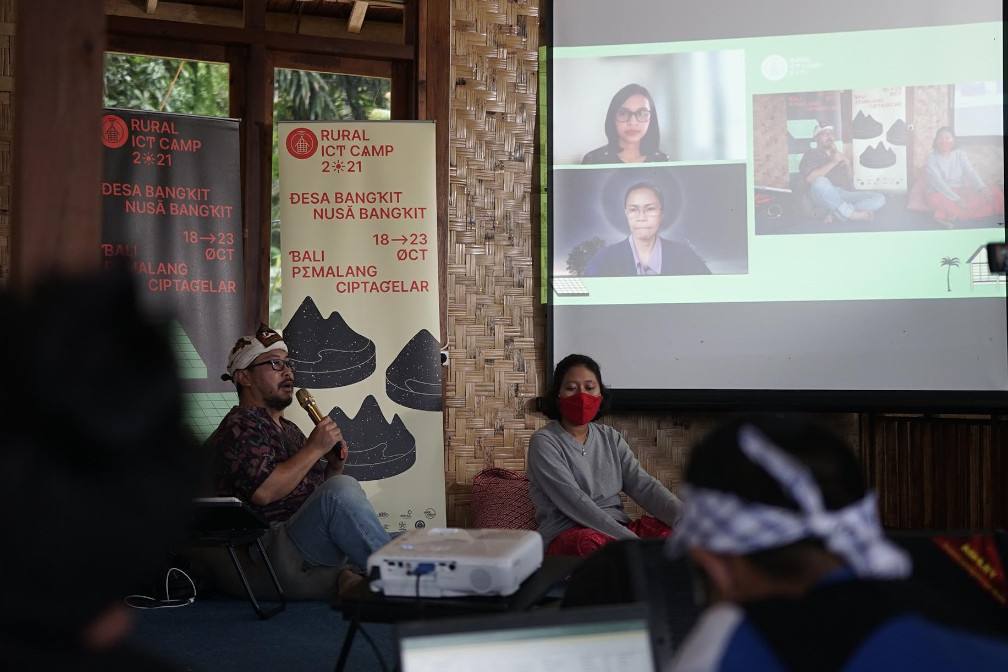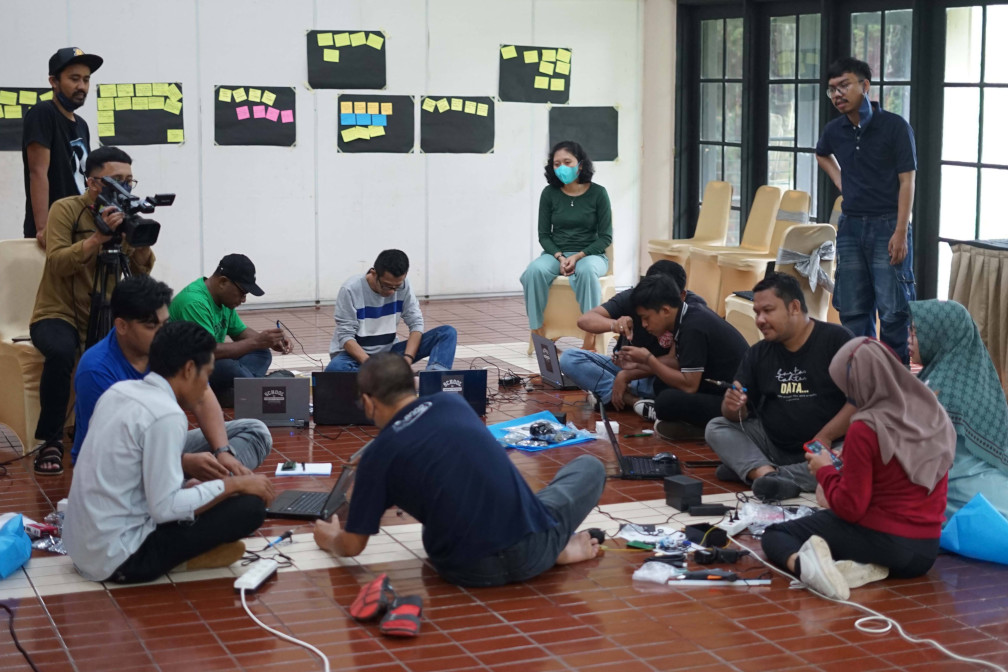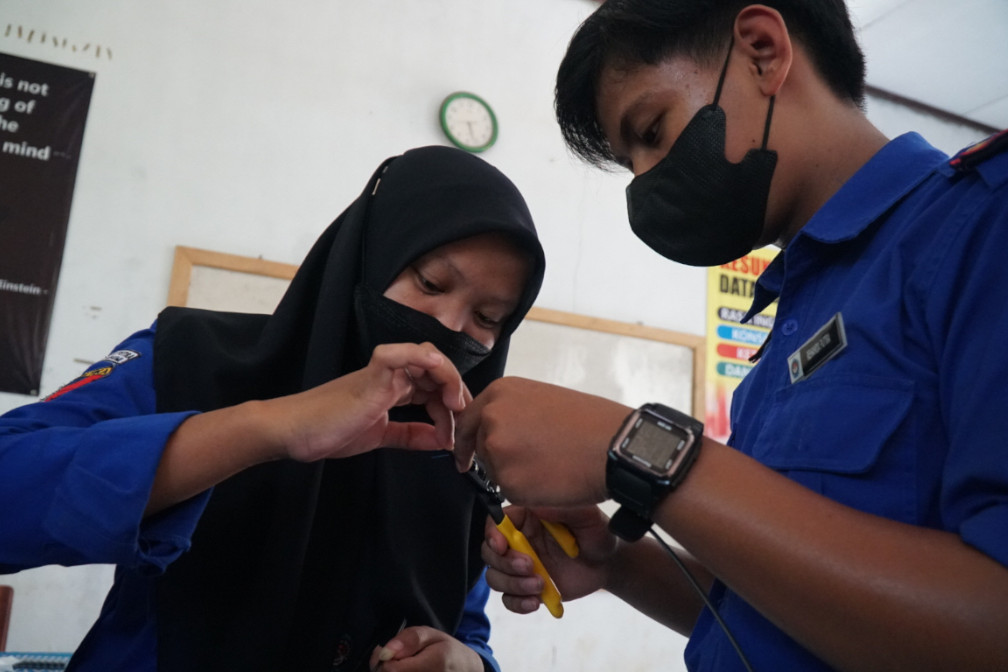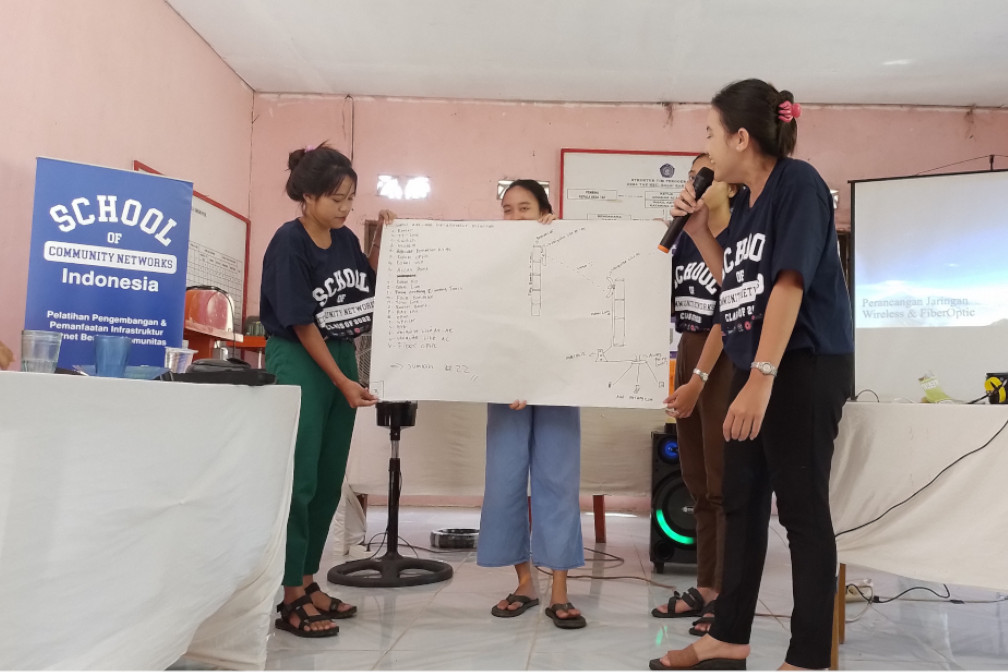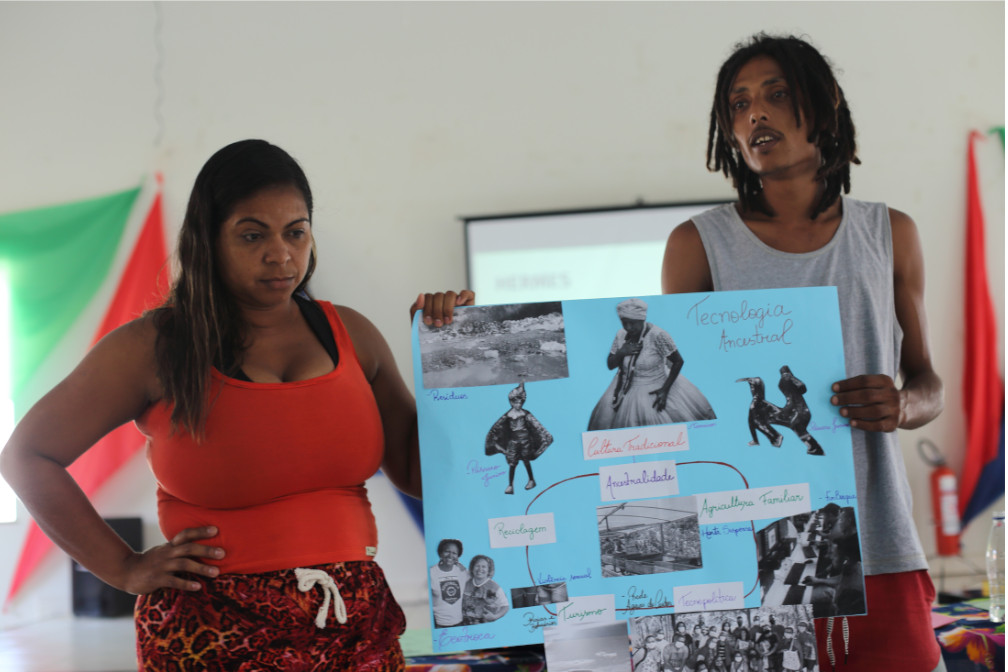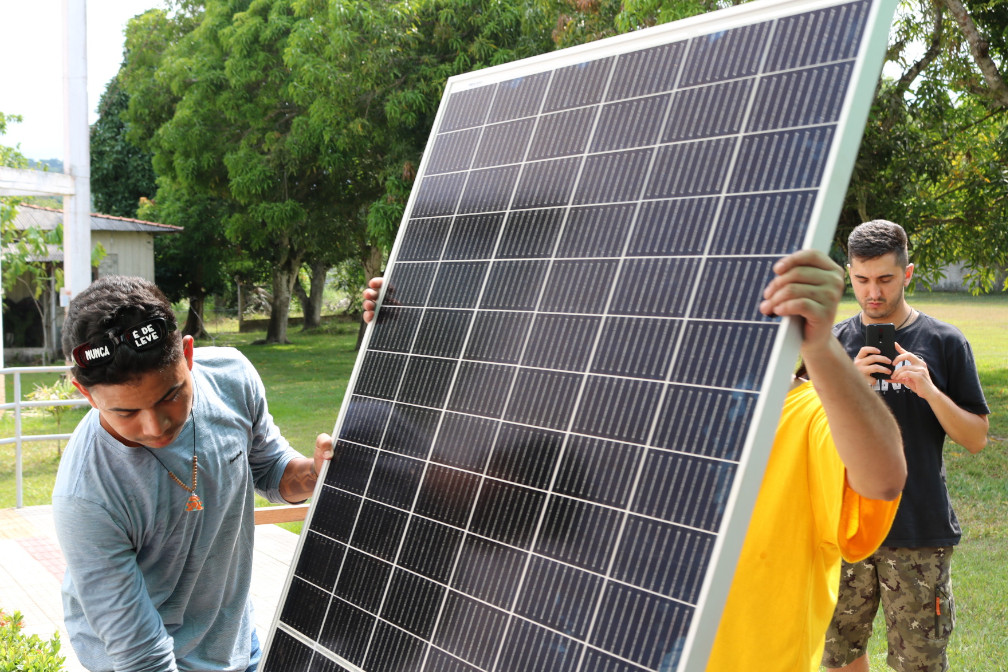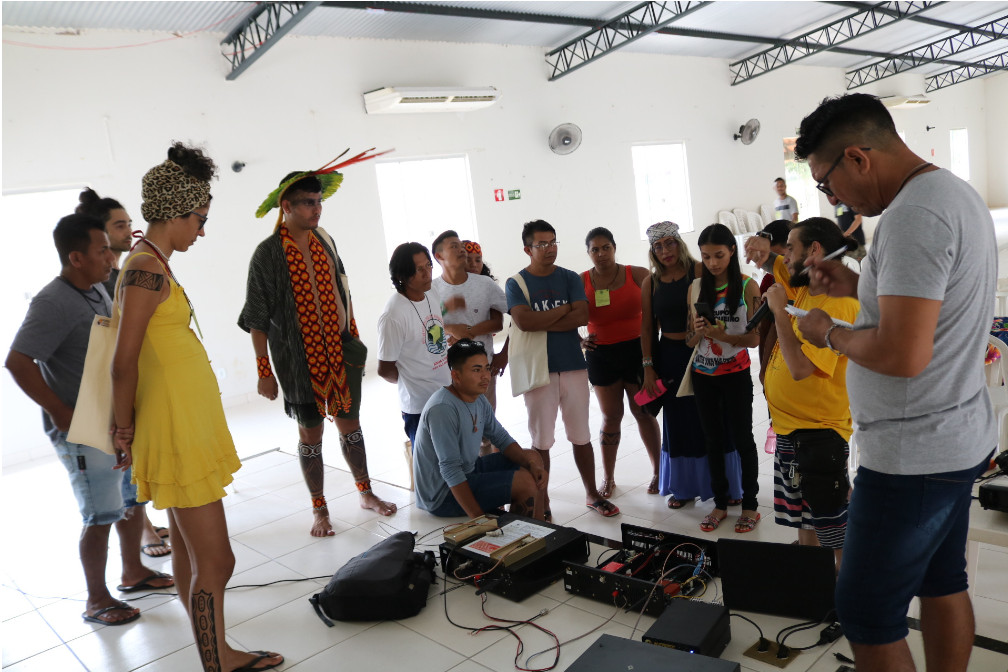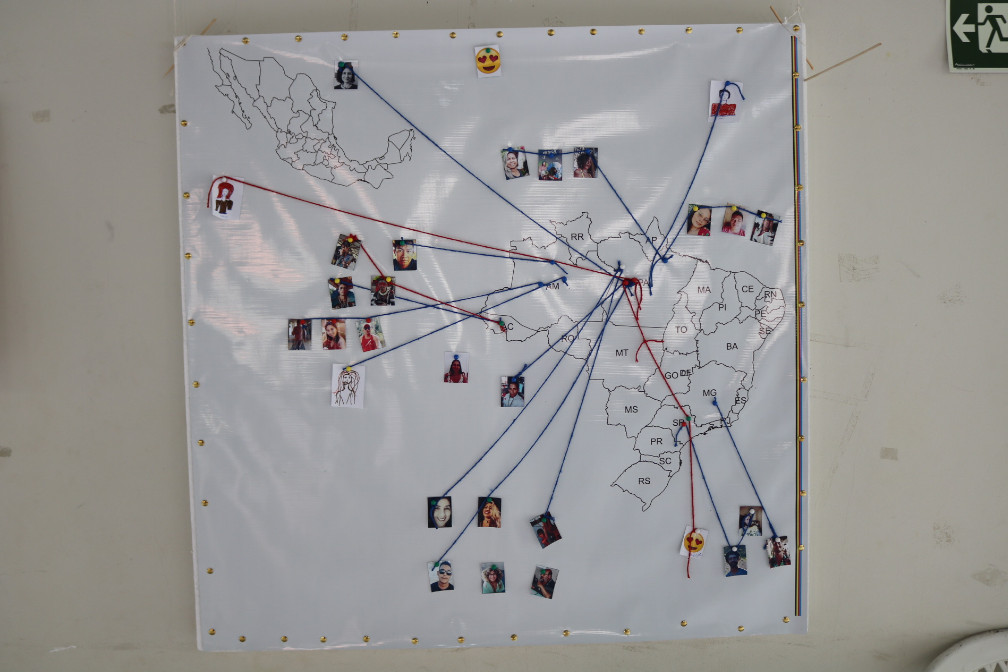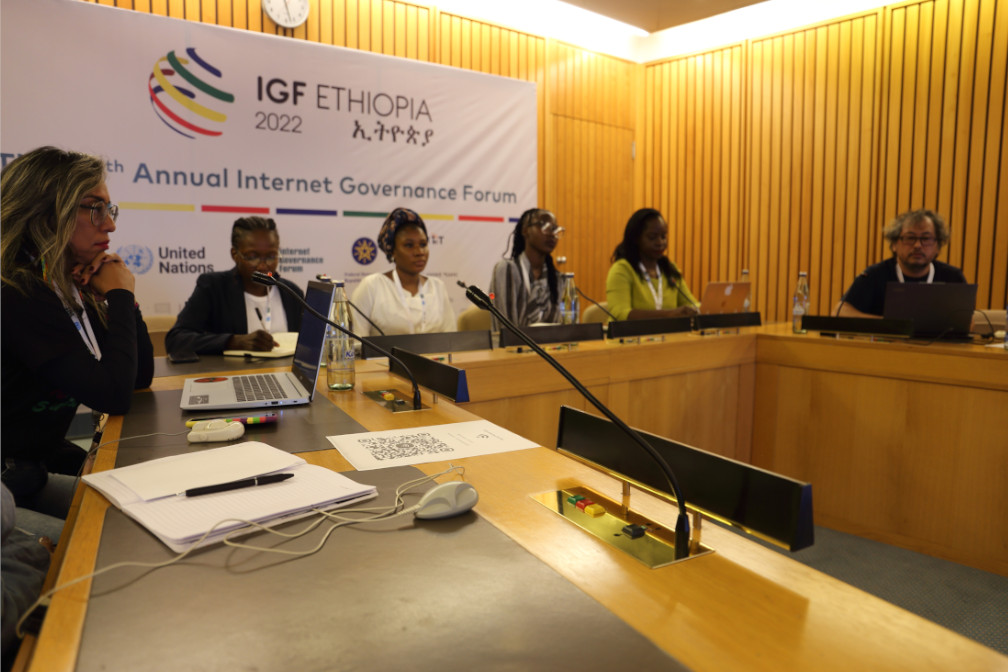
By Daniela Bello and Débora Prado
Published onPage last updated on
The National Schools of Community Networks are a collective capacity-building effort for the creation and development of community networks in five countries: South Africa, Kenya, Nigeria, Indonesia and Brazil. They are part of a strategy to cultivate bottom-up and sustainable approaches to digital inclusion and meaningful connectivity in remote or marginalised communities.
They are a work made by many hands: each school was made possible by the collaboration of various stakeholders. They were promoted and driven by a support organisation in each country: Zenzeleni Networks NPC in South Africa, TandaNet in Kenya, CITAD in Nigeria, Common Room in Indonesia, and Projeto Saúde e Alegria in Brazil. These support organisations designed the school to have autonomy and being grounded in their local realities. Each school gathered around 21 participants from seven local communities in each country, all keen on strengthening or growing a community network in their region. We meet them all in the pictures accompanying this essay.
The schools were backed by the Local Networks initiative, a collective effort led by APC (Association for Progressive Communications) and Rhizomatica, in partnership with people and organisations in Africa, Asia and Latin America and the Caribbean. As part of the project Supporting Community-led Approaches to Addressing the Digital Divide, they were also helped by the UK Government’s Digital Access Programme.
The design and implementation of the National Schools of Community Networks were to strengthen individual and collective self-determination through the creation of a space where community members could share knowledge, and get training and support. The school processes have also been fostering joint action and advocacy in support of the community networks movement at national and international levels.
From knowledge to practice
As an initial step, in 2021, every school designed its training programme with a participatory approach. Following the Participatory Action Research (PAR) methodology from the guide Technological autonomy as a constellation of experiences (2021), they defined their activities and process according to local needs and interests. These were carried out from 2021 to 2023, and they included face-to-face and online training as well as mentoring on different topics related to community networks such as services and infrastructure, sustainability, policy and regulation, and communication.
After the training, in many countries, the participants returned to their communities and received support and mentoring to develop local actions where they could apply their new knowledge in a way that made sense in local conditions. For example, in Brazil during this month, students from the organisation Coletivo Guardiões do Bem Viver, a group of young communicators defending land rights, managed to inaugurate the web radio Uxicará space with a connectivity point in the PAE Lago Grande region, home to 154 communities and 6,600 Indigenous and riverside families.
“Without doubt, in the future we would like to see the continuation of the Amazon School of Community Networks and the replication of more schools, since their collaborative principles are consistent with and reaffirm the essence of our work regarding the strengthening and management strategies and the autonomy of community communication and connectivity networks in communities,” said Adriane Gama, who worked with the Brazilian civil society organisation Projeto Saúde e Alegria to run the school Brazil.
In South Africa, as another example, the results are also quite important in terms of women’s participation, as the community network Seoding, in the Northern Cape, has seeded the first community headed by a woman, showing that women are fully capable of carrying out technical work. Also, internet costs in South Africa are among the highest in the world, and this acts as a digital barrier for many. The school is seen by Zenzeleni as a concrete step towards enabling grassroots communities to promote digital inclusion on their own terms.
Every school has been developing its programme with autonomy and such has been the success that the national organisations leading them in this project are considering replicating the model and continue working with this kind of training initiatives in future.
The plans for the future, however, will require support from institutional partners and founders to carry out projects like these and build a multidisciplinary team to develop collective actions. The continuity of schools will be determined by finding those resources, partners and support.
This photo essay provides a glimpse into the special journeys of local communities making change happen to bridge the digital divide (click on the pictures above to check it out).
Photos: Daniella Bello (South Africa, Brazil and IGF), Débora Prado (Brazil) and courtesy of Zenzeleni NPC (South Africa), CITAD (Nigeria), TandaNet (Kenya) and Common Room (Indonesia)
Débora Prado is a journalist and activist with a background in social communications, feminism and human rights. She is APC's current communications associate for the Local Networks initiative.


